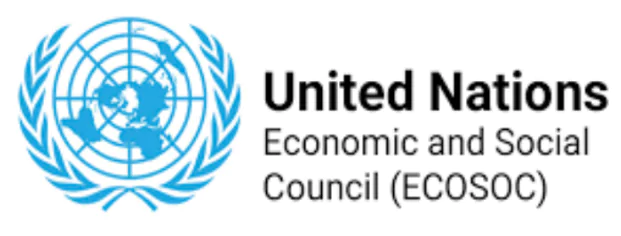India was recently elected to the Economic and Social Council (ECOSOC) of the United Nations for the period from 2026-28 effective from 1 January 2026.

- Other Elected Members: Australia, Burundi, Chad, China, Ecuador, Finland, Lebanon, Mozambique, Norway, Peru, Sierra Leone, Saint Kitts and Nevis, Türkiye, and Turkmenistan.
About The UN Economic and Social Council (ECOSOC)
Established: The ECOSOC was established by the UN Charter as one of the six main organs of the United Nations in 1945.
- Membership: The ECOSOC consists of 54 Member States elected for overlapping three-year terms. The membership is allocated based on equitable geographical representation across five regional groups ie.
- African States (14 seats), Asia-Pacific States (11), Eastern European States (6), Latin American and Caribbean States (10), and Western European and other States (13).
- Election: The UN General Assembly (193 UN Member States), elects ECOSOC members annually by secret ballot.
- A two-thirds majority of valid votes cast is required for election.
- Mandate: ECOSOC is the principle body of The UN responsible for advancing the organization’s work on sustainable development ( economic, social and environmental) and economic issues.
- Role:
- ECOSOC is responsible for coordinating the UN’s work on economic, social, cultural, and humanitarian issues and forging of consensus towards the implementation of the 2030 Agenda for Sustainable Development.
- Important Bodies under the Purview of ECOSOC: International labour Organization (ILO); Food and Agriculture Organization (FAO); United Nations Educational, Scientific and Cultural Organization (UNESCO); World Health Organization (WHO); Bretton Woods Twins (World Bank Group and International Monetary Fund); United Nations Children’s Fund (UNICEF).
Significance of India’s Election
- Shape International Agenda: India will be able to shape the international agenda regarding important policy issues like poverty, climate change, education, and health.
- Voice of Global South: India through its initiatives and stands during its term on the council could take on agendas like lack of fairer economic structures, technology transfer, and climate finance representing the concerns of the Global South.
- Undertake Reforms: India can leverage international trust and credibility to raise the issue of the need for structural reforms in the United Nations Security Council.
- Shaping Global Policy on Sustainable Development: India can highlight its policy achievement in reducing hunger, poverty and increasing levels of education and clean energy adoption to promote global sustainable development practices.
- Strengthen Multilateralism: India’s election to the council will lead to India working on its multilateral treaties with other similar nations, strengthening India’s commitment to multilateralism.
![]() 6 Jun 2025
6 Jun 2025

